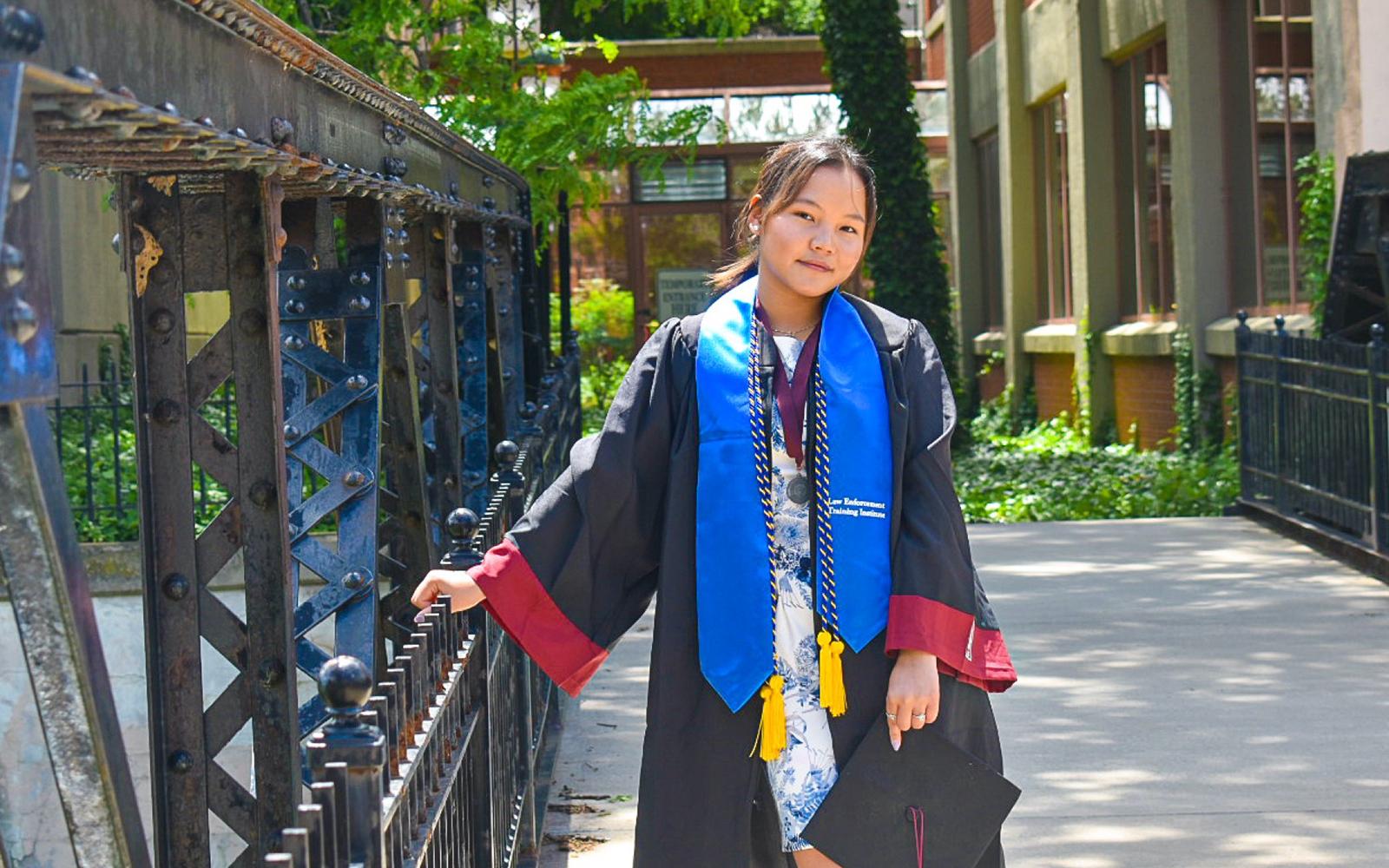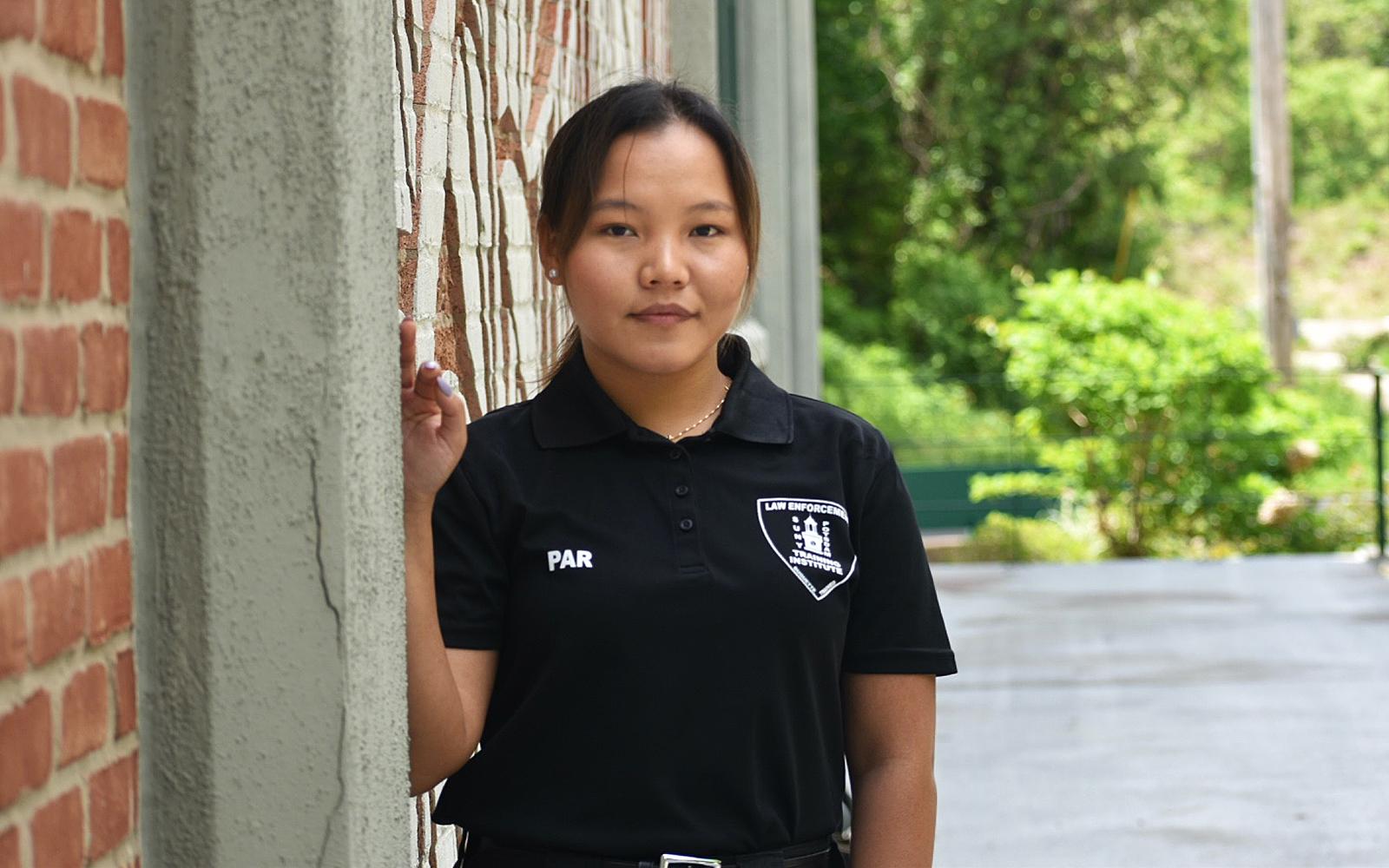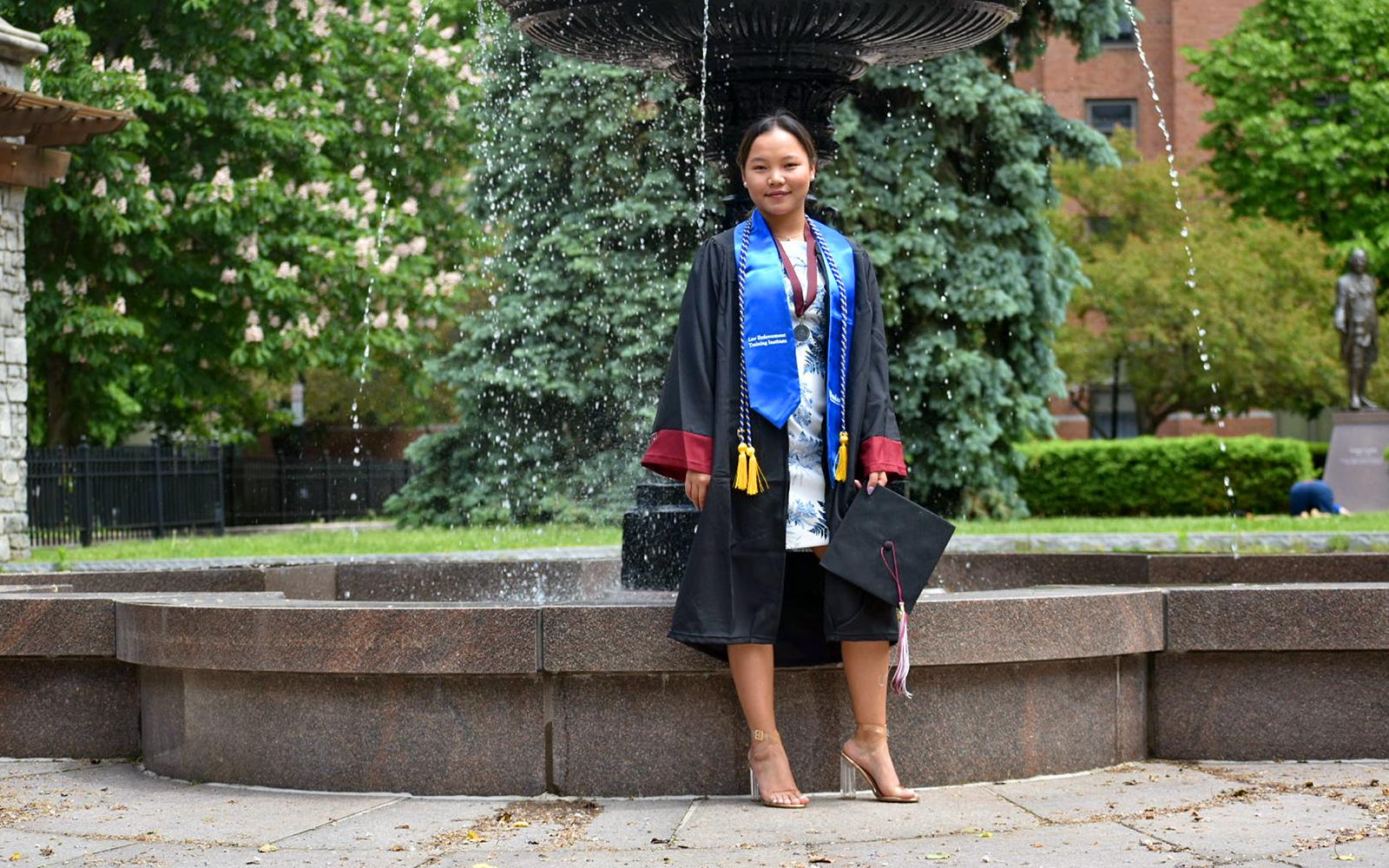In an effort to escape persecution and violence in her native country of Burma, Judith Par ’20 and her family escaped to India when she was still a child.
After facing bigotry as part of a minority group in Burma, Par and her family sought a better life—finding asylum in a refugee camp in New Delhi, India. Because her mother was ill, Par had to watch her younger siblings and could rarely attend the YMCA school, located within the refugee camp with a focus on teaching the alphabet and some basic Hindi. When Par was 12 years old, and her mother’s health improved, she started working to support the family. “It was tough for us financially, so I stopped going to YMCA school and worked until I got in the U.S. in 2013,” Par said.
Par felt lost when she first moved to New York. She worked hard to quickly made sense of a new language, culture and her academic coursework. Sitting in her high school classroom with a limited understanding of the English language, she focused on mastering the work—copying everything the teacher wrote on the board and spending hours at night translating the scribbled chalk lines word for word. “For the first two years of high school I only slept about three hours a night. I was determined to graduate from high school and go to college,” Par said.

In 2016, just three years after arriving in the U.S. for the first time, she enrolled in the criminal justice program at SUNY Potsdam. “As long as I can remember, I always wanted to become a police officer. My interest in law enforcement grew tremendously as I started my freshman year at SUNY Potsdam,” Par said.
She joined SUNY Potsdam’s Law Enforcement Training Institute and excelled academically, receiving the highest GPA of any cadet to ever graduate from the program. “I learned that being in law enforcement is my definite passion. I am a very hard worker and I always put 100 percent into everything I do,” she said. “I love everything about the police academy. Director Sonny Duquette is the best mentor and director you could ask for—I learned so much from him.”

For her final paper in the police academy’s leadership development course, she discussed the importance of women working for law enforcement agencies. “I have a genuine interest in expanding the number of women in law enforcement. Many studies show that they are as capable as men—there should be no reason why women are underrepresented,” Par said.
The summer before her senior year, Par had the opportunity to visit London to study the British criminal justice system. During the seven-day trip she visited courts, attended hearings, and wrote a research paper comparing law enforcement in the U.S. to that of Great Britain. “I also went to the Supreme Court to listen to a presentation about the criminal justice system from a retired police officer—one of my favorite learning experiences. Shout out to Dr. David Bugg [associate professor of sociology and criminal justice at SUNY Potsdam] for organizing this trip for me. He is the best advisor you could ask for,” Par said.
Bugg was one of Par’s most influential professors. He helped organize her trip to England and set up an entire independent study course for her built around the trip. “Judith is one of the most motivated and hard-working students I have ever taught,” Bugg said. “She challenges herself constantly, finding new opportunities to expand her education, from engaging in travel abroad, to the police academy, to being an honors student. She excels at nearly everything she does. Judith is kind, considerate, respectful, and genuinely funny.”

After taking a chemistry class with Dr. Clifford Rossiter, she saw chemistry in a whole new light. “I was prepared to fail when my advisor told me that I needed one chemistry class to graduate. Dr. Rossiter taught the course, and he made it so interesting. I ended up with a 4.0 GPA in that class. I decided to minor in chemistry, and I am now planning to do my master’s in forensic science,” she said.
On top of the challenges of her academic life, she was faced with added responsibilities at home. “I had to take care of my family—paying bills and helping my younger sibling with schoolwork because my mother does not speak English,” Par said. “I lived in the dorm, but I had to be back home at least once every two weeks. I have four little siblings, and I wasn’t able to be involved in clubs and organization as much as I would have liked.”
Despite those commitments, she found time for several groups on campus, including Intervarsity Christian Fellowship (IV). “I was raised a Christian and going to church and getting together to worship is important to me. That’s what IV provided me with, and it made me feel like I was home,” Par said. She also joined Emerging Leaders, a program focused on leadership development. “Emerging leaders is the best organization ever. I meet many friends who are very supportive and encouraging.”
Par graduated in May and is looking toward her future. She has been studying for the GRE, taking civil service examinations, and will be applying for graduate school later this summer. Par will also been working as a census taker. “I was supposed to take my GRE by now, but due to the coronavirus it was canceled twice. I am hoping to go to Syracuse University since it is close to my home,” Par said. “At the same time, I am also taking the civil service exam to become a police officer. My dream job is to become an FBI agent.”
For more information about the Department of Sociology and Criminal Justice, visit: https://www.potsdam.edu/academics/AAS/depts/socio
Article by Jason Hunter
